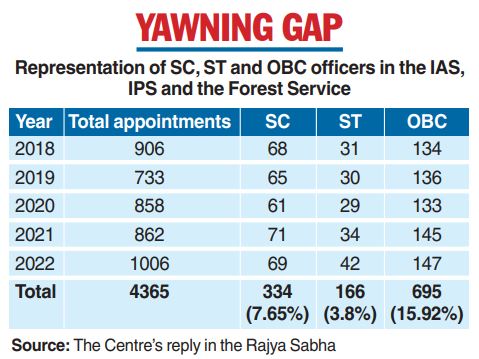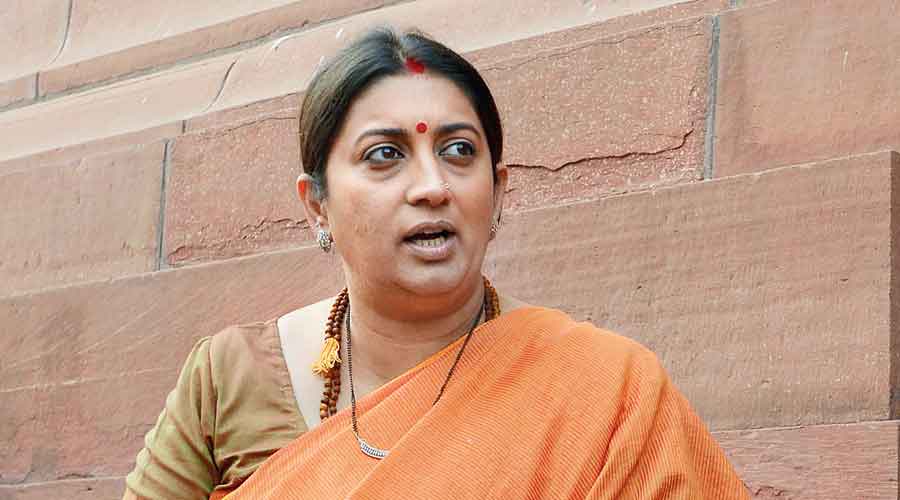People from the Scheduled Castes (SCs), Scheduled Tribes (STs) and Other Backward Classes (OBCs) are poorly represented in some of the top tiers of the all-India services, figures provided by the Centre in Parliament for the past five years have shown.
According to the government data, 4,365 people were directly recruited to the Indian Administrative Service (IAS), Indian Police Service (IPS) and the Indian Forest Service (IFoS) during this period. Of them, only 334 (7.65 per cent) were from the SC communities, 166 (3.8 per cent) from the ST communities and 695 (15.92 per cent) from the OBCs.
In direct recruitment to these services, 15 per cent of the posts are reserved for SC candidates, 7.5 per cent for STs and 27 per cent for OBCs.
The five-year recruitment figures were given by minister of state for personnel Jitendra Singh in response to a question from CPM member John Brittas in the Rajya Sabha. Brittas underlined that members of the SC, ST and OBC communities made up three-fourths of the population. Going by the reservation formula, they should have got 49.5 per cent of the posts in the all-India services but only 27.37 per cent of the posts had gone to them in the past five years.

Brittas said the government wanted neither to release the data of the caste census nor to conduct a fresh caste census since it was aware of the poor representation of these communities. The government does not want such data to come out in the open, the MP added. “The UPA government had conducted a socio-economic caste census in 2011-12. The present government has released the economic data but it has not released the caste data. It knows that the SCs, STs and OBCs have very low representation against their population share. These data on the all-India services also show the same,” Brittas said.
Ashok Bharti, chairman of the National Confederation of Dalit Organisations (Nacdor), a rights group, said that people from the forward castes arbitrarily rejected candidates from other castes because of their caste bias. “There are enough candidates among the SCs, STs and the OBCs who clear all the initial exams but fail the interview. The people on the interview panel, particularly from the forward castes, do not want to see people from the backward classes in decision-making positions,” Bharti said. He said the National Commission for SCs (NCSC), National Commission for STs (NCST) and the National Commission for Backward Classes (NCBC) should monitor the violations in the implementation of reservation and take them up with the government for remedial measures.
“Unfortunately, the national commissions are not taking up the issues of these communities. The chairpersons and members of these commissions are political leaders appointed by the party in power. Such people are more loyal to their party than to these communities,” Bharti said.












